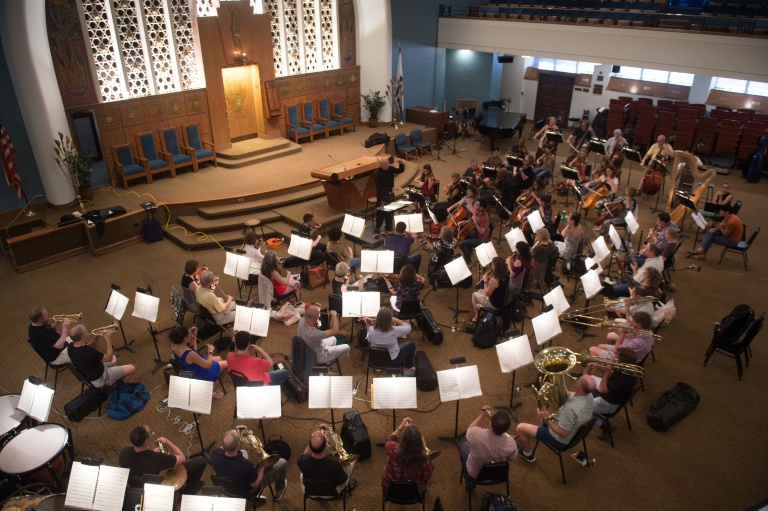“Dimitrij” was a validating success for Antonin Dvorak after its premiere in Prague in 1882 but he later drastically revised it. More than a century later, it is little performed outside of his native Czech Republic.
The opera will be fully staged for the first time in the United States starting Friday north of New York City at Bard College, whose longtime president Leon Botstein is a prominent scholar and conductor who champions lesser-known works.
“Dimitrij” takes place during the Time of Troubles, the period of war and famine in the early 17th century when Russia bled through an anarchic power vacuum until the Romanovs, who would become the country’s final monarchic dynasty, consolidated control.
A sequel of sorts to Modest Mussorgsky’s opera “Boris Godunov,” “Dimitrij” opens with the title character marching with his Polish army into Moscow, inflaming a battle for control of Russia as questions swirl about his provenance and claim to govern.
With a story centered on Russian scheming and doubts over political legitimacy, “Dimitrij” offers unnerving parallels to US audiences in 2017, with President Donald Trump’s administration rocked by incessant allegations of ties to Moscow during last year’s election.
The opera’s storyline is also about Russia itself. The Bard College production sets “Dimitrij” partially in the late 1980s and early 1990s, seeing another Time of Troubles between the fall of the Soviet Union and President Vladimir Putin’s assumption of power.
– A different side of Dvorak –
Botstein was drawn to the themes of “Dimitrij” but also intrigued by the music — finely developed harmonies, as are characteristic of Dvorak, yet with a strong influence from Italian opera.
“The whole thing is just a stunning piece of work — riveting and, one might even say, germane. And so what the hell is this thing doing in obscurity?” Botstein told AFP.
The 70-year-old musicologist — who had led Bard since 1975, building the college on the Hudson River into a hub for public intellectuals — has long devoted his energies to reviving forgotten operas.

Botstein — shown rehearsing with the American Symphony Orchestra, which will perform”Dimitrij” — says US opera houses are too attached to well-worn works and too driven by the search for big-name singers
“Dimitrij” is part of Bard SummerScape, a season of music which this year will highlight Frederic Chopin, the Polish-born Romantic.
Botstein — who also leads the American Symphony Orchestra in New York, which will play in performances of “Dimitrij” — is outspoken in his criticism of opera houses, especially in the United States.
He says they are too attached to well-worn works and too driven by the search for big-name singers.
“This is all chasing what they think is the new star, the Enrico Caruso of our time,” he said of the celebrated Italian tenor of a century ago.
“Which is of course ridiculous because opera no longer has the place in the culture that catapulted Enrico Caruso to world fame,” he said, while offering Placido Domingo as a notable exception.
– ‘Masterpiece syndrome’ –
Only one Dvorak opera remains commonly performed — “Rusalka,” the fairy tale with its popular “Song to the Moon.”
Modern audiences frequently hear Dvorak’s “New World Symphony,” his celebration of the sounds of America, and the mournful “Stabat Mater” composed after his daughter’s death.
Botstein, while supportive of new works, is perplexed by how many lesser-known pieces by earlier composers fall out of the repertory.
“Is the only reason why we are concerned with Leonardo (da Vinci) because of the Mona Lisa? No! Painting doesn’t suffer from this, literature doesn’t suffer from this, but music does. It’s a kind of masterpiece syndrome,” he said.
He said that music has become “a kind of passive Olympic sport” where “the only people we remember are the gold medalists, and the gold medalists only remember one victory.”
“It’s ridiculous and extremely heart-breaking,” Botstein said. “It’s a cultural tragedy.”
Download our app